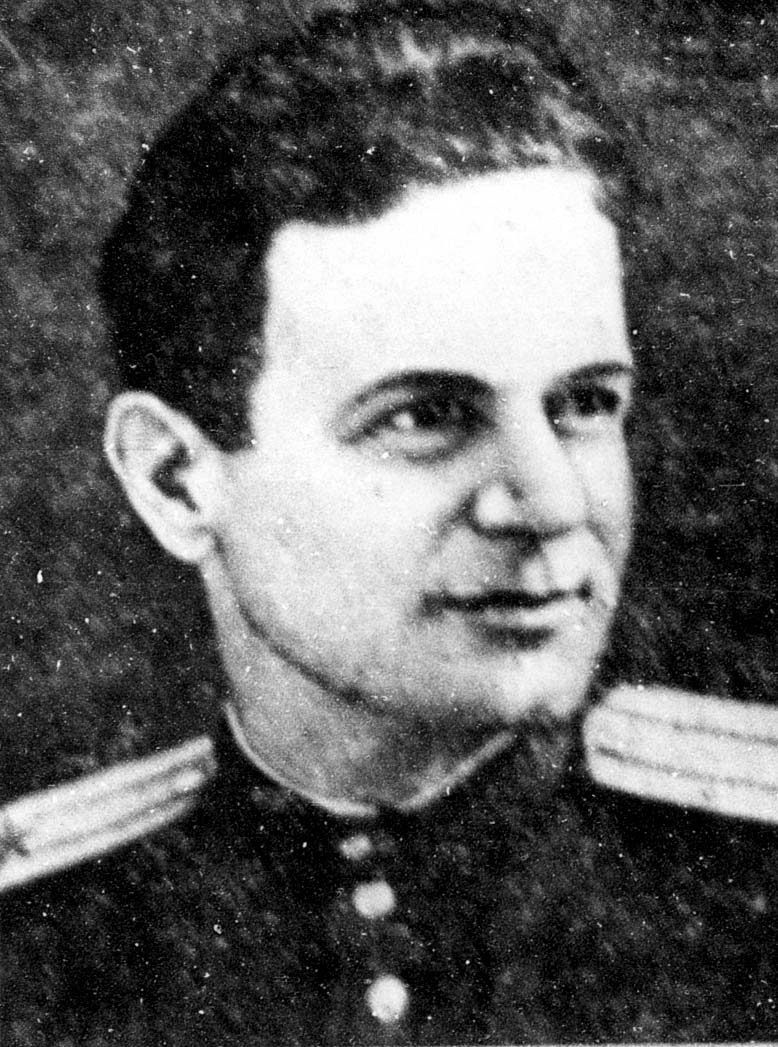Emmanuil Gotlib was born in Kremenchug, Ukraine in 1908. After finishing 7 years of school, at the age of 15 he worked as a locksmith in Kremenchug and in the Donbass. Later he left for Dnepropetrovsk, where he worked at a metal-processing factory. In 1929 Gotlib headed a collective farm (kolkhoz) in the Kherson District. In 1930 he was drafted into the Red Army and in 1937 he graduated from the Khabarovsk Army Political School. As a young officer Gotlib took part in the Soviet-Japanese border battle at Lake Khasan, Manchuria (July 29 - August 11, 1938).
After the outbreak of the Soviet-German war on June 22, 1941 Emmanuil Gotlib served in the Red Army on the North-West Front. In October 1943, upon graduating from officer-training school, Major Gotlib was sent to the 2nd Baltic Front as deputy commander of a regiment in an infantry division. In late June 1944 the Red Army launched Operation Bagration (June 23 - August 29, 1944) for the liberation of Belorussia, the Baltic States, and eastern Poland. He not only commanded his unit but personally took part in battles, demonstrating considerable bravery. When in August 1944 the Germans tried to blow up a bridge over the Odze River in Latvia in order to stop the advance of the Red Army troops, Gotlib hurled grenades from the bridge and with his teeth ripped the cord of the fuse of one of the German grenades that was already burning. His actions enabled the units of his infantry division to cross the river. During the next fierce battle, for the liberation of the fortified city of Krustpils (today part of Jēkabpils), Gotlib succeeded in infiltrating his men to the city, taking the Wehrmacht troops by surprise. Since German machine-gun fire from the cellar of one of the buildings prevented the Soviet troops from advancing Major Gotlib crawled via sewage pipes to the cellar, threw some grenades and silenced the machine-guns, thus leading to the liberation of the city. During the German counterattack on August 10, Gotlib was seriously wounded in his hand but continued to shoot his machine-gun with the other hand until his division troops captured a bridgehead on the Aiviekste River. After the battle he was found lying unconscious next to his machine-gun.
On March 24, 1945 Major Emmanuil Gotlib was awarded the title of Hero of the Soviet Union for valor during battles in Belorussia and Latvia. Sometime afterwards two articles by Aron Toker and Mira Zheleznova (Aizenshtadt) prepared for Jewish Anti-Fascist Committee (JAC) depicted Gotlib's acts of heroism.
After the war Gotlib became an instructor at a military academy. In 1959, after being demobilized, Emmanuil Gotlib lived in Kharkov, where he worked as the deputy director of a soil research institute.
Emmanuil Gotlib died in Kharkov in 1991.







